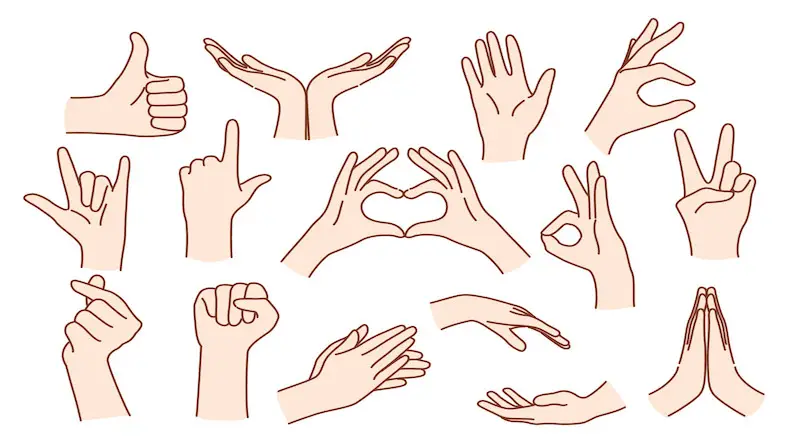Marriage is a beautiful journey, but the experiences of husbands can vary significantly across different cultures. How a husband behaves, what is expected of him, and how he interacts with family can depend heavily on cultural norms, social expectations, and regional traditions.
In this article, we explore the key differences between Indian husbands and foreign husbands, why these differences exist, and what they mean in everyday life. This will give you insights into the diversity of marital experiences across the world.
Note: These are general observations. Individual experiences can vary widely, and not every husband fits into these categories.
1. Cultural Norms and Expectations
Indian Husbands
In traditional Indian culture, husbands are often seen as providers and protectors of the family. Gender roles may be more defined, and the husband is expected to uphold family values and responsibilities.
For example:
- Providing financial security for the family
- Taking care of family honor
- Making decisions in line with cultural traditions
Foreign Husbands
The expectations for husbands in foreign cultures can vary widely. Many countries promote egalitarian partnerships, where husbands and wives share household and childcare responsibilities equally.
- Sharing household chores
- Equal participation in parenting
- Collaborative decision-making
Key takeaway: While Indian husbands may experience pressure to uphold traditional roles, foreign husbands may have more freedom to define their roles together with their spouses.
2. Family Dynamics
Indian Husbands
Family plays a central role in Indian marriages. Extended families often live nearby or together, and maintaining strong relationships with in-laws is considered very important.
- Frequent involvement in family gatherings
- Participation in extended family decisions
- Balancing own desires with family expectations
Foreign Husbands
Family structures vary in other countries. In many foreign cultures, the nuclear family—husband, wife, and children—is emphasized. Extended family involvement may be minimal, giving couples more independence.
- Prioritizing time with the spouse and children
- Less pressure from in-laws
- Building their own family traditions
Key takeaway: Indian husbands often navigate family networks, while foreign husbands may focus more on their immediate family unit.
3. Gender Roles
Indian Husbands
Traditional gender roles are still present in many parts of India. Husbands may be expected to:
- Be the primary earners
- Protect the family financially and socially
- Take the lead in household decisions
Foreign Husbands
Gender roles vary widely across countries. Many foreign husbands share responsibilities equally, including:
- Cooking and cleaning
- Taking care of children
- Emotional support and open communication
Key takeaway: Indian husbands may face more rigid gender expectations, while foreign husbands often enjoy shared responsibilities with their spouses.
4. Work-Life Balance
Indian Husbands
Indian work culture can be demanding, often requiring long hours. Balancing work commitments with family responsibilities can be challenging.
- Longer work hours
- Less leisure or family time
- Work often prioritized over personal life
Foreign Husbands
Work-life balance is a growing priority in many countries. Some foreign husbands enjoy:
- Flexible working hours
- Paid paternity leave
- Time dedicated to hobbies and family
Key takeaway: Foreign husbands may have more opportunities to spend quality time at home compared to their Indian counterparts.
Google Ad 1
5. Childcare and Parenting
Indian Husbands
Active involvement in childcare is increasing in India, especially in urban areas. However, traditional expectations still influence parenting roles.
- Mothers often take the lead in daily childcare
- Fathers may be more involved in financial support
- Modern couples are slowly sharing parenting duties
Foreign Husbands
In many foreign cultures, fathers are actively involved from the beginning. Participation in feeding, bathing, school activities, and bedtime routines is common.
- Shared responsibility from birth
- Equal emotional involvement
- Parenting seen as a joint effort
Key takeaway: While Indian fathers are gradually becoming more involved, foreign husbands often have established norms for equal parenting.
6. Decision-Making
Indian Husbands
Decisions often involve balancing personal wishes with family expectations and cultural traditions. Major life decisions may include:
- Financial planning
- Choosing a home or city
- Education for children
- Family events
Foreign Husbands
In many countries, decision-making is more collaborative. Husbands and wives often make choices together based on mutual agreement rather than family pressure.
- Shared financial decisions
- Joint planning for vacations, home, and children
- Respecting each other’s preferences
Key takeaway: Indian husbands often navigate family influence, while foreign husbands may have more independence in making decisions with their spouse.
7. Relationship Dynamics
Indian Husbands
Maintaining relationships with extended family is important. Husbands often play a role in mediating family conflicts and maintaining harmony.
- Regular visits to in-laws
- Participation in cultural and religious events
- Supporting family elders
Foreign Husbands
Couples often prioritize building their own independent life and family traditions. Extended family influence is usually less intense.
- Independence in lifestyle choices
- Focus on couple’s growth and happiness
- Occasional family involvement
Key takeaway: Indian husbands may balance multiple relationships, while foreign husbands often focus on the couple and immediate family.
8. Changing Expectations
Indian Husbands
Urbanization, education, and changing social norms are reshaping the expectations of Indian husbands. Modern Indian couples share responsibilities more equally than before.
- Participating in household chores
- Emotional support for spouse
- Shared parenting
Foreign Husbands
In many countries, social norms are already moving toward flexibility and equality. However, cultural expectations still vary based on region, religion, and personal beliefs.
- Progressive approach toward marriage
- Equal partnership emphasized
- Flexibility to define individual roles
Key takeaway: Both Indian and foreign husbands are experiencing changes in expectations, with a growing emphasis on equality, understanding, and shared responsibilities.
Conclusion
Marriage is a unique journey shaped by culture, upbringing, and personal beliefs. While Indian husbands may face traditional expectations, extended family involvement, and gender-based responsibilities, foreign husbands often enjoy greater flexibility, shared responsibilities, and independence in decision-making.
However, the modern world is bridging these gaps. Indian husbands are embracing equality and shared parenting, while foreign husbands continue to navigate their own cultural and family dynamics.
The key is understanding, respect, and adapting to each other’s needs and values. Every husband, whether Indian or foreign, can create a happy and fulfilling marriage through love, support, and mutual respect.
Thanks for reading! For more insightful lifestyle articles, relationship tips, and cultural explorations, check out PeoplesBLOG.















